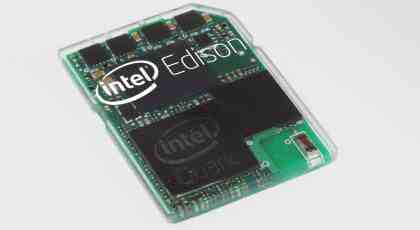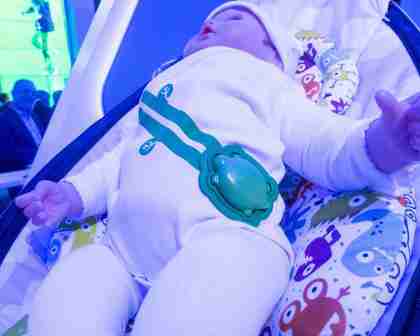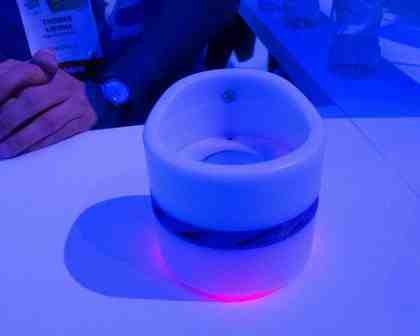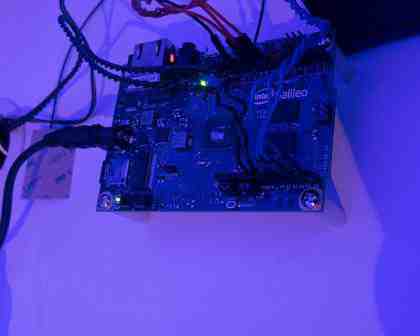UPDATED: Includes price information
Intel has announced Edison, an x86-compatible, SD card-sized computer with built-in Wi-Fi that it hopes will bring genuinely useful wearable technology closer than ever to reality. Speaking at the 2014 Consumer Electronics Show in Las Vegas, Intel CEO Brian Krzanich stressed Intel’s commitment to making wearable technology mainstream.
"Wearables are not everywhere today because they aren't yet solving real problems and they aren't yet integrated with our lifestyles," said Krzanich. "We're focused on addressing this engineering innovation challenge. Our goal is, if something computes and connects, it does it best with Intel inside."

The Intel Edison has a dual-core 22nm Intel Quark system-on-chip (SoC) that provides low-power consumption processing for small form factor devices, such as wearable technology. The SoC is equivalent in power to an existing Atom CPU and Quark was unveiled at IDF 2013 , although this is the first time that we've seen an actual product.
As it is x86-compatible, Edison can be used with multiple operating systems and its built-in Wi-Fi helps widens the scope of interaction with other devices such as smartphones and tablets.

One example of the Edison’s role in wearable technology is Rest Devices’ Mimo Baby Monitor, a ‘onesie’ that lets you monitor a baby’s respiration, skin temperature and position wirelessly via a smartphone app. The Mimo Baby Monitor’s sensors are stored in a pack that’s shaped like a cute cartoon turtle.
We spoke to Rest Devices and it told us that the turtle's battery lasts for around five days, and it's easily charged by using the magnetic charging dock that comes with the product.
Rest Devices was also demonstrating its smart mug, which has a graphic display showing you your baby's current status, so you can check that it's sleeping OK. The company also had a smart baby milk station, which keeps milk cold at night and begins to heat it when your baby wakes up.

This is just the start of what Intel hopes is a revolution in wearable devices, with Edison due to ship in the middle of the year. It's SD card size and slot compatibility should make it easier to develop for, not requiring any specialist hardware.

We asked Intel how much it would cost, but were told that the company couldn't talk about prices yet. However, Intel also had on display Galileo, an Arduino compatible development board that's around the same size as a Raspberry Pi. We were told, "We can't talk about price, but the Galileo board is $60 and [Edison] will be comparable."
DESIGN COMPETITION
In order to spur the design and production of wearable technology, Intel has thrown down the gauntlet to inventors and entrepreneurs with its Make It Wearable challenge. According to Intel, the challenge calls “upon the smartest and most creative minds” to make wearable technology that solves real-world problems. To provide an impetus, Intel is to award over $1.3 million US dollars in cash prizes to the winners of the challenge, which should help focus the creative energies of those taking part.
For us, technology should make augment your life and make it easier, so we look forward to seeing if Intel’s Edison really will usher in a new technological age of unobtrusive and interconnected devices.
